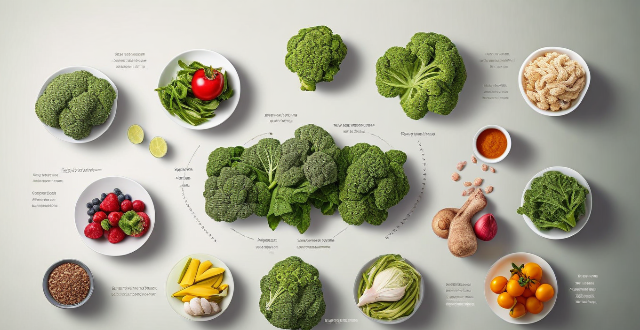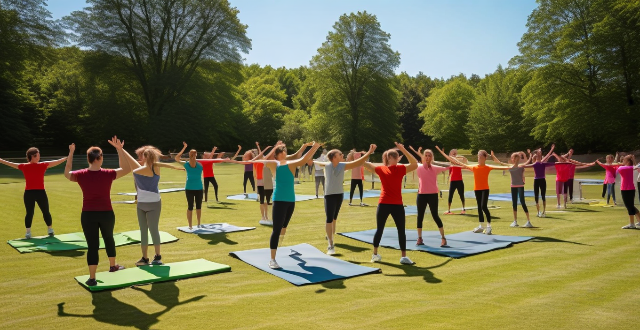Endurance Carbohydrate

How can carbohydrate loading benefit endurance athletes ?
Carbohydrate loading, or "carb-loading," is a dietary strategy used by athletes to maximize glycogen storage in muscles and liver for endurance sports. It offers benefits like increased energy availability, enhanced recovery, and mental advantages such as confidence and focus. Implementing this strategy involves reducing training intensity while increasing carbohydrate intake, choosing complex carbs over refined sugars, and maintaining proper hydration and electrolyte balance. While effective for many endurance athletes, individualized planning with a nutritionist is recommended.

Are there any specific dietary recommendations for endurance athletes
Dietary recommendations for endurance athletes include consuming a higher intake of complex carbohydrates, adequate protein for muscle repair and recovery, healthy fats for energy, proper hydration, meeting increased needs for micronutrients, timing meals and snacks for optimal performance, and individualizing dietary needs based on personal factors.

What are the effects of poor sleep on endurance sports ?
Poor sleep can negatively impact endurance sports performance by decreasing athletic performance, impairing cognitive function, increasing the risk of injury, and elevating stress levels. Endurance athletes should prioritize getting enough high-quality sleep each night to optimize their physical and mental abilities while reducing their risk of injury and illness.

What is a good marathon diet plan ?
A good marathon diet plan should provide the necessary nutrients and energy to support an athlete's training and performance during a marathon. It should include a high-carbohydrate diet, protein needs, and healthy fats. A high-carbohydrate diet should provide around 60-70% of total daily calories from carbohydrates, while protein needs should provide around 10-20% of total daily calories. Healthy fats should make up around 20-35% of total daily calories. Good sources of carbohydrates include whole grains, fruits, vegetables, legumes, and low-fat dairy products. Good sources of protein include lean meats, poultry, fish, eggs, nuts, seeds, and plant-based proteins like tofu and tempeh. Good sources of healthy fats include olive oil, avocados, nuts, seeds, fatty fish (such as salmon), and dark chocolate.

How often should I run to see improvements in my speed and endurance ?
To see improvements in your speed and endurance, you should run 2-3 days per week of high-intensity interval training (HIIT) or sprint workouts if your goal is speed, 3-4 days per week of moderate-intensity runs lasting 30-60 minutes if your goal is endurance, or a combination of both if your goal is both speed and endurance. It's crucial to listen to your body, be consistent, and track your progress to achieve your running goals.

What are some effective exercises for building strength and endurance in the water ?
Effective Water Exercises for Building Strength and Endurance Water exercises are a great way to build strength and endurance. They provide resistance that helps to tone muscles, improve cardiovascular health, and increase overall fitness levels. Here are some effective water exercises that you can try: 1. Swimming Laps 2. Water Aerobics 3. Resistance Training 4. High-Intensity Interval Training (HIIT) 5. Yoga in the Water Whether you prefer swimming laps, participating in water aerobics classes, resistance training, HIIT workouts, or yoga in the water, there's an option out there for everyone. So why not give it a try today?

What is the relationship between sleep and athletic performance ?
The relationship between sleep and athletic performance is crucial, as adequate sleep is essential for athletes to perform at their best both physically and mentally. During sleep, the body undergoes recovery and repair processes, including muscle growth and repair and immune system functioning. Sleep also plays a vital role in maintaining mental health and cognitive functioning, such as concentration and focus and mood regulation. Additionally, sleep is crucial for maintaining energy levels and endurance, particularly for endurance athletes. However, sleep deprivation can have several negative effects on an athlete's performance, including decreased reaction time, impaired coordination, reduced endurance, increased perceived exertion, and altered perception. Therefore, it is essential for athletes to prioritize their sleep and ensure they get enough restful sleep each night to maximize their athletic performance.

How do sports supplements work ?
Sports supplements are designed to enhance athletic performance, improve recovery, and support overall health by providing essential nutrients. They work in various ways: 1. **Energy Production**: Carbohydrates replenish glycogen stores, delay fatigue, and maintain performance levels; Creatine increases short-term power and strength. 2. **Muscle Growth and Repair**: Protein supports muscle recovery and building; BCAAs reduce muscle soreness and improve endurance. 3. **Hydration and Electrolyte Balance**: Electrolytes prevent dehydration, cramping, and maintain muscle function. 4. **Joint Health and Recovery**: Glucosamine and Chondroitin may reduce joint pain; Omega-3 fatty acids reduce inflammation. 5. **Performance Enhancement**: Caffeine improves endurance and focus; Beta-alanine delays muscle fatigue. Supplements should complement a balanced diet and their use should be guided by healthcare professionals.

What is the ideal meal timing for optimal sports performance
The ideal meal timing for optimal sports performance is crucial for athletes to maximize their potential. Proper nutrition can help improve endurance, strength, and overall performance during physical activities. Key points to consider when planning meals include eating a pre-workout meal containing carbohydrates, protein, and healthy fats 2-3 hours before exercise; staying hydrated throughout the day; consuming simple carbohydrates during longer workouts; eating a post-workout meal rich in protein and carbohydrates within 30 minutes after exercising; and avoiding eating too close to workout time. By following these guidelines, athletes can ensure they have the necessary fuel for their bodies to perform at their best.

How should I incorporate sports nutrition supplements into my daily routine for optimal results ?
The text provides a comprehensive guide on how to incorporate sports nutrition supplements into your daily routine for optimal results. It starts with understanding the basics of sports nutrition and assessing individual goals and needs. It then discusses different types of supplements, their timing of intake, and how to incorporate them into various parts of the day. The text emphasizes the importance of monitoring and adjusting supplement use based on personal experiences and advises consulting with a professional for personalized advice.

What is the importance of nutrition in sports medicine ?
The article discusses the importance of nutrition in sports medicine, emphasizing its role in providing energy for exercise, preventing injuries, enhancing performance, aiding recovery, supporting the immune system, and contributing to mental well-being. It highlights the specific nutrients that are crucial for athletes, such as carbohydrates for energy, protein for muscle repair, iron for oxygen transport, B vitamins for energy conversion, and antioxidants for cell protection. The article also emphasizes the need for a balanced diet to prevent illnesses and improve overall health. It suggests that athletes should work with sports nutritionists to develop personalized diet plans that meet their specific needs and goals.

Are there any specific diets recommended for people with diabetes ?
The text discusses recommended diets for people with diabetes, including the Mediterranean diet, DASH diet, vegetarian or vegan diets, low carbohydrate diets and focusing on portion control and mindful eating. It emphasizes the importance of working with a healthcare professional to determine the best dietary approach based on individual needs and preferences.

Are there any specific diets that enhance exercise efficiency ?
Yes, there are specific diets that can enhance exercise efficiency. These include a high-carbohydrate diet for energy, a low-fat diet for weight management and cardiovascular health, a high-protein diet for muscle recovery and maintenance, and a plant-based diet for optimal nutrient intake. Examples of foods in each diet category are provided, along with the benefits they offer for exercise efficiency. It is recommended to consult with a healthcare professional before starting any new diet plan.

What is the importance of nutrition in competitive sports ?
In competitive sports, nutrition plays a crucial role in enhancing athletic performance, promoting recovery, and maintaining overall health. Athletes need to consume a balanced diet that provides them with the necessary nutrients to support their training and competition demands. In this article, we will discuss the importance of nutrition in competitive sports and how it can help athletes achieve their goals.

Are there any potential side effects of switching to a gluten-free diet ?
Switching to a gluten-free diet can have several potential side effects, including nutrient deficiencies, digestive issues, weight gain, headaches and fatigue, and higher cost. It is important to be aware of these potential side effects and take steps to ensure adequate nutrition on a gluten-free diet. Consultation with a healthcare professional is recommended before making any significant changes to your diet.

What are the best practices for sports nutrition in managing a healthy lifestyle ?
Sports nutrition is key to managing a healthy lifestyle. Best practices include staying hydrated, eating a balanced diet with carbohydrates and protein, choosing healthy fats, timing meals around workouts, using supplements cautiously, and prioritizing recovery through rest and proper post-workout nutrition. Consulting with a registered dietitian or healthcare professional can provide personalized advice.

How do sports nutrition supplements affect muscle recovery after a workout ?
Sports nutrition supplements can significantly support muscle recovery post-workout by providing essential nutrients. Protein supplements like whey and casein replenish amino acids, while carbohydrate supplements such as BCAAs and beta-alanine reduce soreness and fatigue. Other nutrients, including creatine, glutamine, and vitamins/minerals, further enhance recovery. A structured supplementation routine, tailored to individual needs, can optimize muscle recovery and athletic performance.

What kind of diet is recommended for women who want to lose weight through exercise ?
Recommended diet for women who want to lose weight through exercise includes lean protein, complex carbohydrates, healthy fats, and plenty of water. It's important to eat a light meal or snack before workouts and refuel with protein and carbohydrates after exercising. Portion control and avoiding empty calories are also crucial for weight loss success.

How do I balance protein and carbohydrates in my breakfast ?
Balancing protein and carbohydrates in your breakfast is essential for maintaining a healthy diet. Here are some tips on how to achieve this balance: 1. Choose a protein source (e.g. eggs, Greek yogurt, cottage cheese, tofu, nut butter). 2. Add complex carbohydrates (e.g. whole grain bread or toast, oatmeal, fruits, vegetables). 3. Incorporate healthy fats (e.g. avocado, nuts, seeds, olive oil). 4. Consider portion sizes and use measuring cups or a food scale if needed. 5. Plan ahead by prepping ingredients or preparing meals in advance. 6. Be mindful of added sugars and choose whole, unprocessed foods whenever possible.

What role does protein play in a healthy diet ?
Protein is an essential nutrient that plays a crucial role in maintaining a healthy diet. It contributes to tissue growth and repair, enzyme and hormone production, immune system function, fluid balance, and energy provision. Consuming a variety of protein sources is important to ensure all necessary amino acids are obtained.

What kind of physical conditioning is included in a tennis training camp program ?
Tennis training camps typically include exercises to improve cardiovascular endurance, strength, agility, and flexibility.

What are the best foods to eat before and after a workout ?
Eating the right foods before and after a workout can significantly impact your performance and recovery. Before exercising, opt for easily digestible carbohydrates like whole grain bread or bananas for energy, and include some protein such as Greek yogurt to prevent muscle breakdown. After your workout, focus on replenishing lost nutrients with proteins from lean meats or eggs, and carbohydrates from quinoa or fruits to aid recovery. Hydration is key both before and after exercise; water and coconut water are great choices for maintaining fluid balance. Avoid heavy, fatty, or spicy foods before working out, and steer clear of alcohol and processed foods post-workout.

How does caffeine influence workout intensity and results ?
Caffeine can boost workout intensity and results by increasing energy levels, improving focus, and enhancing endurance. However, it's important to be aware of potential side effects like dehydration risks, sleep disruption, and dependency issues. Moderation and individualized consideration are key when incorporating caffeine into a fitness routine.

What is the difference between cardiovascular and resistance training in health management ?
The text discusses the differences between cardiovascular and resistance training, highlighting their unique benefits and examples of each. Cardiovascular training strengthens the heart, aids in weight management, and improves endurance, while resistance training enhances muscle strength, bone density, and metabolism. Combining both types of exercise leads to a well-rounded fitness regimen that addresses multiple aspects of health, including endurance, strength, flexibility, and balance. The text suggests ways to incorporate both forms of exercise into a workout routine for optimal health management.

Can strength training help improve my running performance ?
Strength training is an essential component of any fitness program, including running. It helps to build muscle strength and endurance, which can significantly improve your running performance. Strength training can help increase muscle strength and endurance, improve running economy, reduce the risk of injury, and enhance posture and body alignment. To incorporate strength training into your running routine, start slowly with light weights and gradually increase intensity over time. Choose exercises that target major muscle groups used during running, such as glutes, hamstrings, quadriceps, calves, and core muscles. Incorporate plyometric exercises to improve explosive power and acceleration. Allow sufficient recovery time between sessions to avoid overtraining and potential injuries.

What are the benefits of strength training for overall health ?
Strength training offers numerous benefits for overall health, includingStrength training offers numerous benefits for overall health, includingurance, increased bone density Incorporating strength training into your fitness routine can help you achieve a healthier, stronger, and happier life.

What are the best types of exercises for stress relief ?
The best types of exercises for stress relief include aerobic exercise, yoga, pilates, tai chi, and strength training. Aerobic exercise increases your heart rate and makes you sweat, which can help to reduce stress levels. Yoga helps to calm the mind and body, reducing stress and anxiety levels. Pilates focuses on strengthening the core muscles, improving posture and balance, and increasing flexibility. Tai Chi combines deep breathing with slow, flowing movements and has been shown to be effective in reducing stress levels. Finally, strength training involves using resistance bands or weights to build muscle strength and endurance.

In what ways can dance be considered both a sport and an art form ?
Dance is a unique form of expression that can be considered both a sport and an art form. As a sport, it requires physical strength, endurance, and coordination. As an art form, it involves creativity, emotion, and aesthetics. Dancers must have strong muscles to execute lifts, jumps, and other challenging movements. Dance performances often last for several hours, requiring dancers to maintain their energy and stamina throughout the show. Dancers must have excellent coordination to move their bodies in sync with music and other dancers on stage. Many dance styles require a high degree of flexibility. Dancers must adhere to strict training regimens to maintain their physical condition and technique.